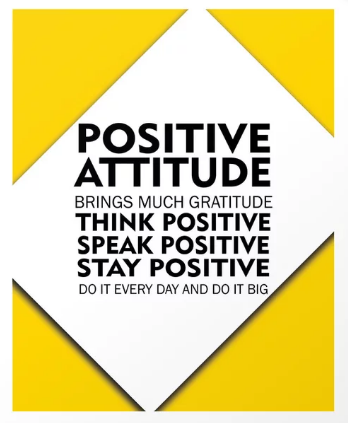Have you ever given this Helen Keller quote any thought? Think about it for a moment. How does it play into lessons learned? Hold the thought for a few minutes and give me your answer after reading this article about the lessons learned from the school of hard knocks.
When one door of happiness closes, another opens, but often we look so long at the closed door that we do not see the one that has been opened for us.
Ever wondered how the best leaders handle being at the top so effortlessly? The truth is, these highly successful people do stumble, worry, and doubt themselves, just like the rest of us. But they are very good at mastering the way they are perceived.
Many a day I like to reflect back on my three careers, my experiences as a leader and manager, and my lessons learned. Here are some of my better lessons that I have shared most often.
Understanding expectations
It’s so easy to launch yourself into an effort, to get straight to business when working with a new boss, and think that we’re being productive. Happened a lot during my corporate career. Taking the time to clarify expectations upfront, however – whether that be in terms of the work itself , what’s the scope, and so on; or in terms of the working relationship … how you can work most effectively together – can avoid a whole lot of time wasting.
The same applies as a consultant as I am today. You can dive straight in and try to solve everything you think needs fixing, but that may or may not be what the client wanted. Clarifying those expectations at the beginning of the relationship, identifying three main areas where you’re going to focus your time and really deliver results, will allow you to deliver the most value while making sure that the client is getting what they want.
Get information
In my last career, I am a marketer and in many aspects, I know a lot about online and social media marketing. But I do follow a lot of other online marketers; I am subscribed to their blogs and email lists. Why do I do that? Because I can still learn from them: I can see what they do and how I react to it. I also get a ton of information and can easily select which of this information I want to read or watch and what to ignore. All in all being subscribed to my competitors makes me a better marketer.
As an online marketer I am never done learning and by simply listening to people I would otherwise regard as my competitors I get even better at what I am doing. Not listening to them would mean I would be missing out. I can get a ton of information for free from people that I highly respect.
If your competitors produce great content from your niche and share industry insights or knowledge, appreciate their work and learn from them. If they provide value, you can profit from it just as much as your potential customers.
Communications and collaboration
At IBM or Lockheed Martin, and at any large company, there is a whole system of words and expressions and those dreaded acronyms that you need to understand in order to be able to communicate. Once you have the lingo, this will give you shortcuts to getting your point across and will ultimately get things done more quickly and in a way that everyone agrees with.
While this language code can be useful, you also need to remember the poor souls who aren’t quite up to speed. This can include new hires, of course, and external agencies, but you’ll be surprised how sometimes even the more experienced managers won’t have a clear idea of what you’re actually talking about. Agree on common definitions upfront and you’ll be more effective in delivering something that everyone is happy with.
Power of effective communications
I was amazing at writing at school. So it was a bit of a shock when I started my first job at IBM and found that essay writing was not the same thing as business writing.
On top of that, an international environment where most people were not native speakers meant that simple and unambiguous communication was crucial. Effective business writing had a specific objective, used clear and concise language, active tense rather than passive; it wasn’t about sounding clever or being poetic.
Learning to write an effective business document – a recommendation, a report, or just an email for that matter – will allow you to get your message across quickly and effectively, to influence people with a more persuasive argument, and to impress people with your convincing business results.
The ability to distil complicated matters into a clear and well thought-out message is a useful skill in all areas of life, above and beyond the corporate world.
Making tradeoffs
Ah, choices. This is a biggie..
So what does this mean? Well, you can apply this at a couple of different levels. First, looking at your project list: you need to identify which projects will have the biggest impact and then focus your time on those projects – it’s far too easy to get bogged down in little tasks and trivial details.
Second, at the macro level, a strategy is choice: we’ll focus on this market OR this market, we’ll invest here OR there, we’ll prioritize this OR that. Giving a laundry list of every possibility, or saying that “it’s all important”, is the path to failure.
Work-life balance
I’ve written about this before and I’ll say it again: the concept of work-life balance is a completely false dichotomy; and I think it was IBM that taught me this. During my first years at IBM I was a poster child of “work hard, play hard” – me and everyone else.
We were all straight out of university, young and single, hardworking and ambitious. We worked late and partied later. In the good old days, IBM even encouraged this with extravagant Golden Circles events in exotic places.
The point is that you can’t hate your job, counting the minutes until you get to go home at 6pm, the days until the weekend, and the weeks until the next vacation. That’s no life at all.
Instead, I’m a big fan of work-life integration, where we enjoy our professional endeavors and spending time with our colleagues just as we have fun while working hard on our personal interests in our time “off”. I’ve never felt happier or more fulfilled than I do now, working harder than ever on my own businesses and projects and having a blast while doing it.











